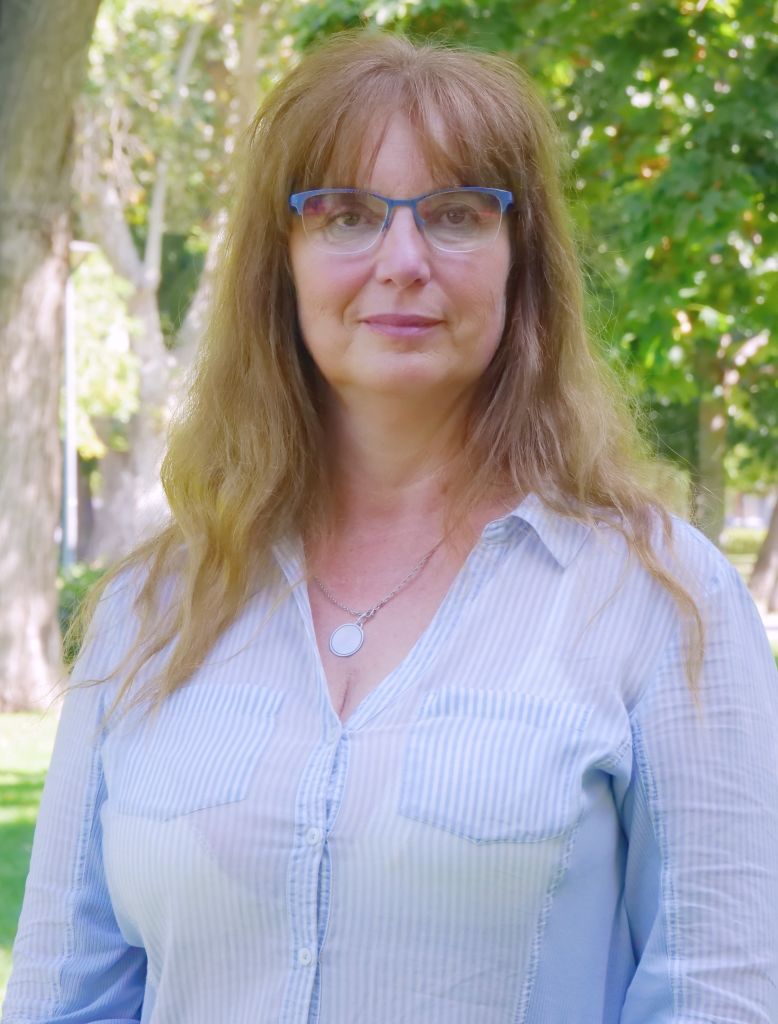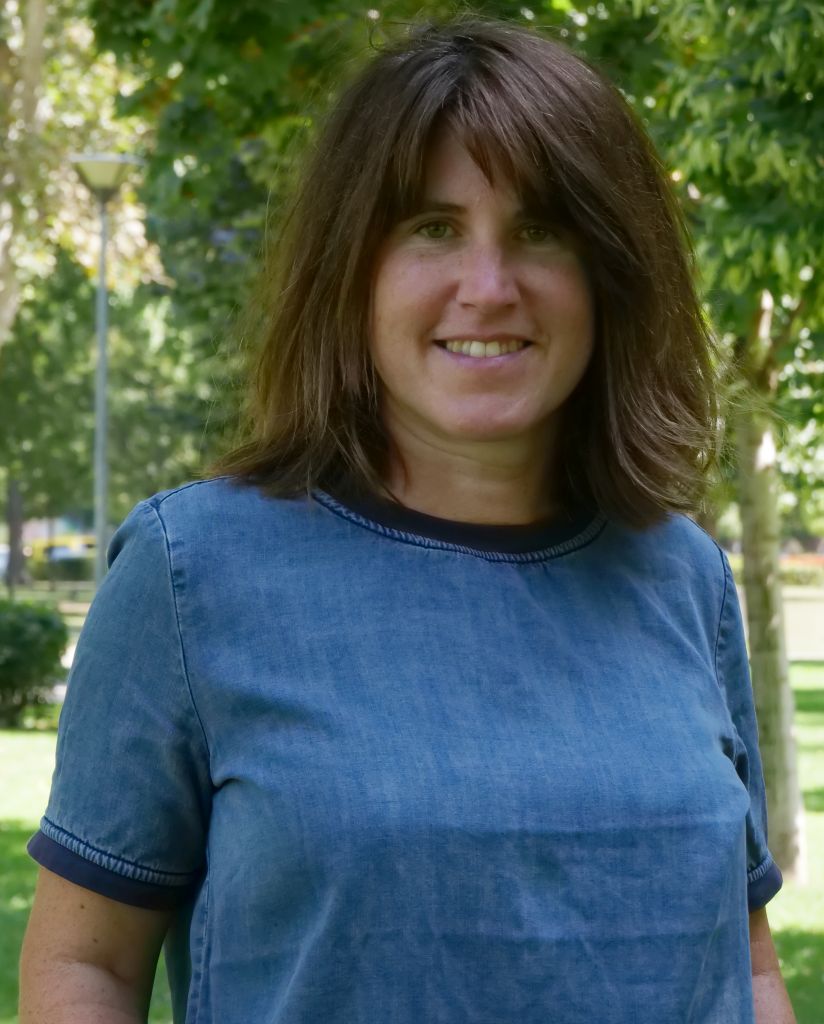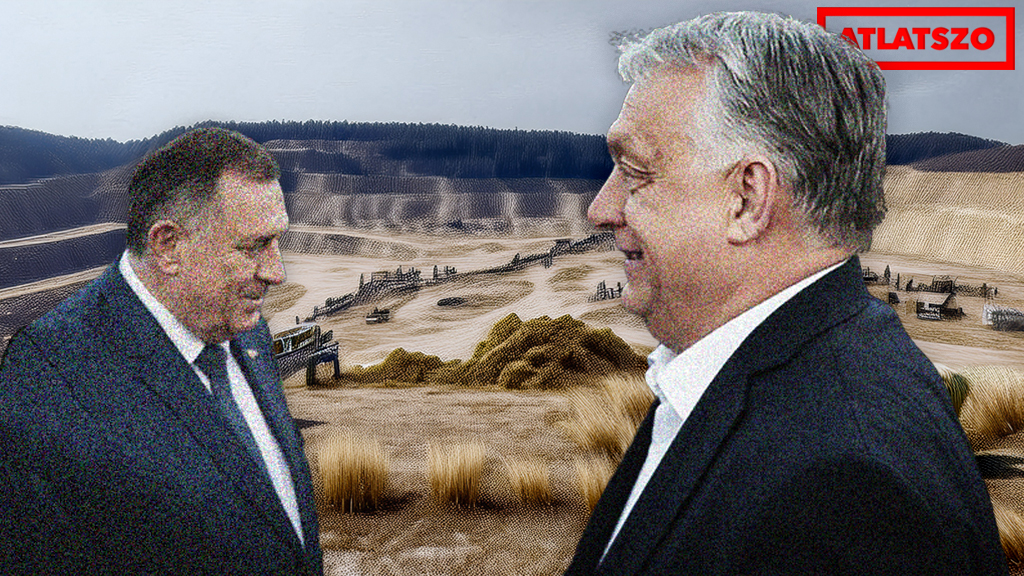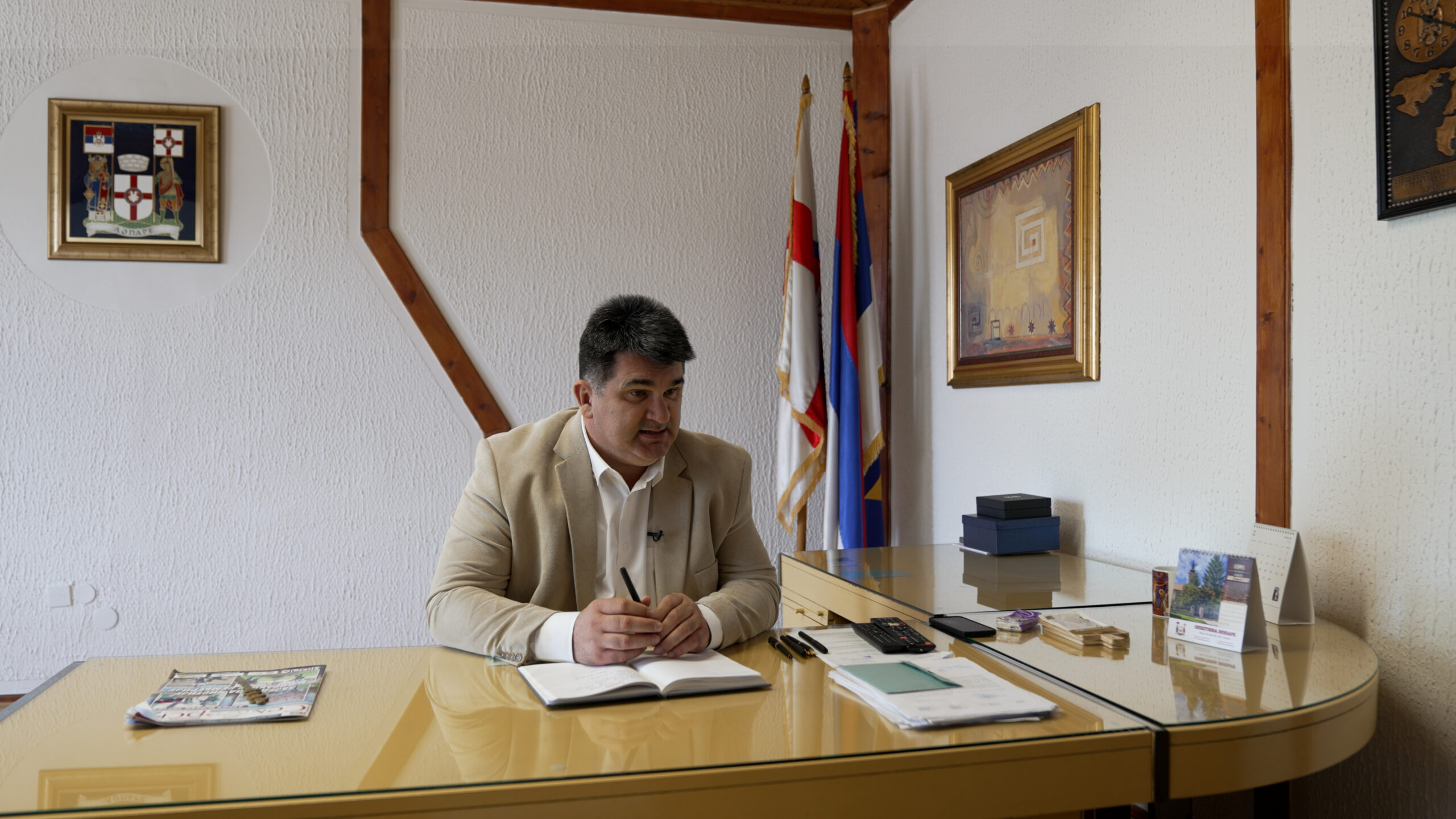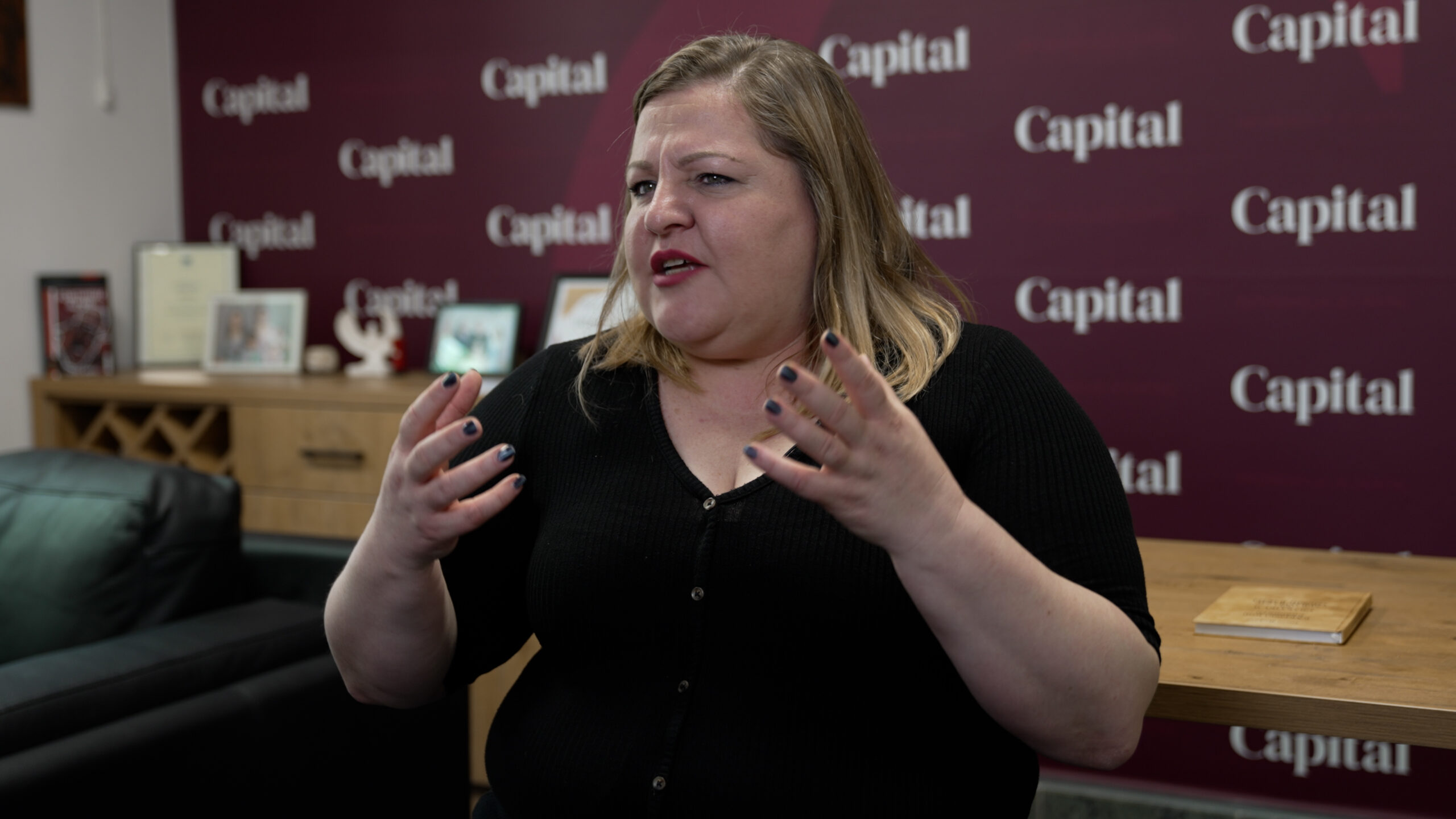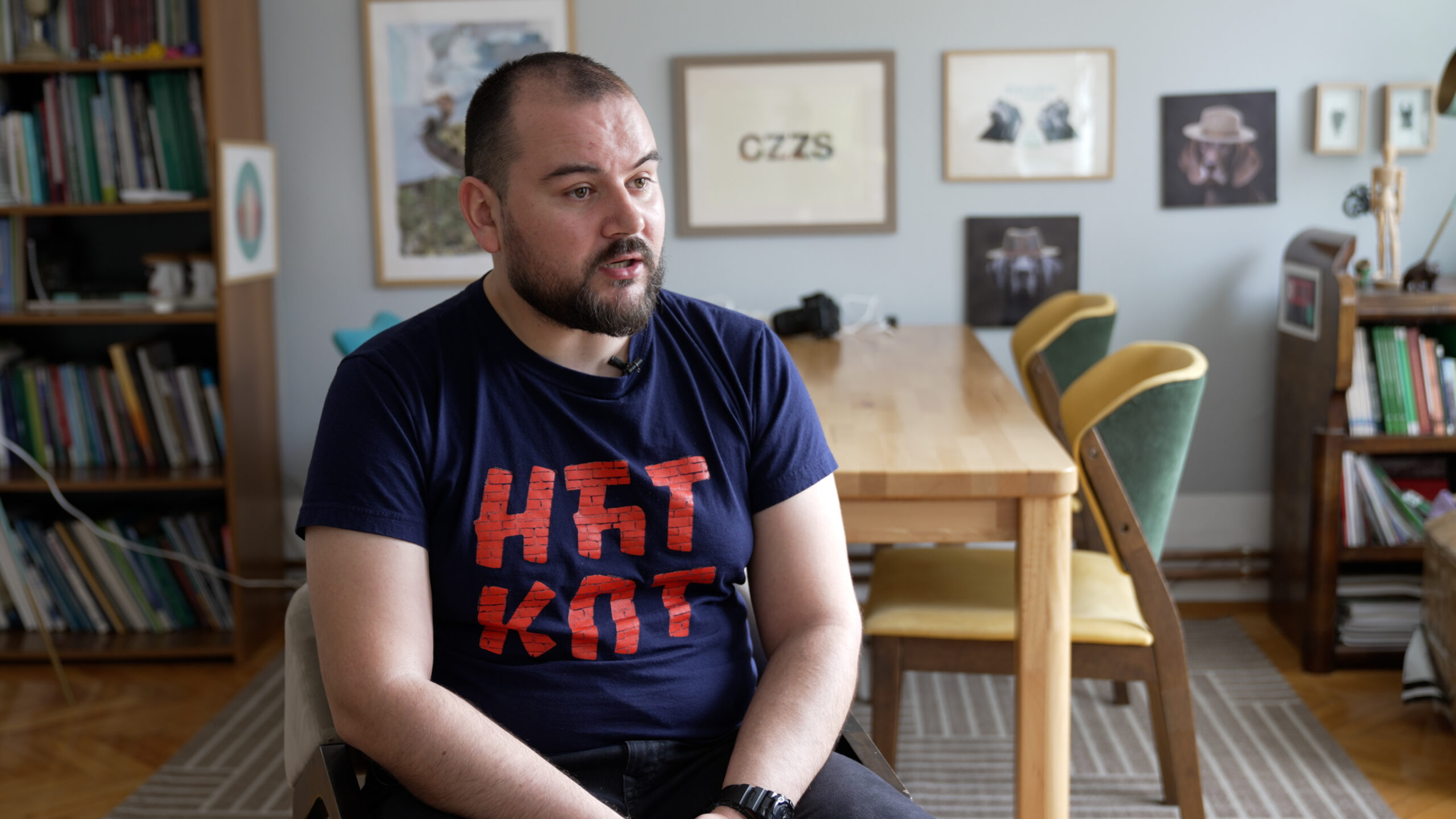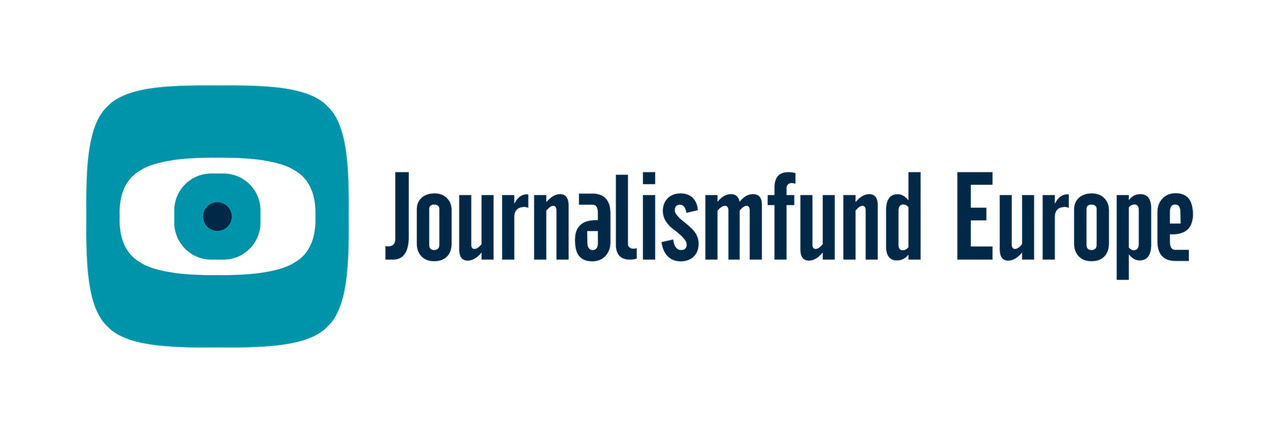The https://english.atlatszo.hu use cookies to track and profile customers such as action tags and pixel tracking on our website to assist our marketing. On our website we use technical, analytical, marketing and preference cookies. These are necessary for our site to work properly and to give us inforamation about how our site is used. See Cookies Policy
Orbán and Dodik to deal with lithium mine, residents would face eviction and deforestation
The Orbán government is about to embark on a controversial mining project in Bosnia under the stewardship of President Milorad Dodik. Mayors and residents in the area are prepared to physically resist to stop the project. On-the-spot report from Bosnia and Herzegovina.
“I have lived in this house for 70 years, where should I go from here?”, asks an elderly woman hoeing her garden. She, too, will face eviction if the extraction of raw materials starts here.

We are in Bosnia and Herzegovina, in the Majevica Mountains, on the edge of the town of Lopare. On the green hills, sheep bellow, cowbells ring, everything is quiet and peaceful. It’s hard to imagine the machinery, the destruction of the forest, the removal of hillsides, the leaking of chemicals — all the things that can come with a mine.
The depths of Majevica mountain hold lithium, boron, potassium and other minerals. These are to be mined by the Swiss-based Arcore AG. Despite protests from residents and environmentalists, the leaders of the Republika Srpska are fully behind the project. “I would give them a licence tomorrow,” said Milorad Dodik, president of the Republika Srpska, according to Euronews.
News about Hungary’s possible involvement in the mining project first arose last year. However, the Hungarian government only made a terse reference to the possibility of joint extraction in March of this year. It is still unclear how the planned cooperation would take place, given, among other things, that the mining concession has been applied for by the aforementioned Arcore AG. Adding to the confusion, Dodik has in the meantime offered the United States access to the mineral deposit.
Laws serve the interests of investors
Arcore AG published the results of its geological survey in November 2023. Before that, many people did not even know that test drilling was taking place.
Subsequently, surrounding municipalities joined forces and the residents took action. They organized protests, signed petitions and eight municipalities adopted a joint declaration against the lithium mine. The mayor of Lopare asked the Parliament of the Republika Srpska not to grant the concession for the lithium mine. However, the assembly did not adopt the proposed declaration.
So far, their struggle seems to have been in vain, and rather to have had an unwelcome effect. “In 2022, they included in the law that the local population should be involved in geological exploration, but then last year this passage was deleted from the law,” says Rado Savić, mayor of Lopare. The mineral deposit lies within the territory of this municipality.
In February of this year, Arcore AG requested the concession for extracting. “We asked for the documentation, but all we got from the Ministry of Energy was an empty response, no documents. We have very limited access to information,” says the mayor. “In our country, the laws favor the investors, not local communities,” he adds.
According to information from the news outlet Radar, although Arcore AG is based in Zug, Switzerland, the company is not actually Swiss. Mathias Schmid, the current chairman of the board of directors in Arcore AG, and his vice-chairman Aleksandar Petrović founded the company by buying a Swiss-based firm previously dealing with oriental carpets, and merged it with a company called Arcore AG which was owned by a Slovenian businessman at that time. Aleksandar Petrović owns 40 percent of the company. Another 40 percent of the shares is held by the Dutch ND Group investment holding company, and the remaining 20 percent is owned by other private actors.
The municipality of nearby Tuzla adopted a 16-point declaration at the general assembly held on March 27. Among other things, the Tuzla municipality calls for the concession procedure to be halted until an independent environmental assessment is carried out. They also call for the involvement of international organizations and a ban on mining lithium and other raw materials within a 40-kilometer radius. They also propose an investigation of the harmful effects of lithium mining in the Majevica region. In May, they sent a statement to the UN High Commissioner for Human Rights and Climate Change on the possible consequences of the planned lithium mining in Lopare.
“We have zero information,” confirms Omer Berbić, representative of the Tuzla Municipality. “We have no transparency from the Ministry of Energy of the Republika Srpska and the ministries of the Federation of Bosnia and Herzegovina have no authority to interfere over Republika Srpska’s ministry. And on the state level we have no ministry that can stop them.”
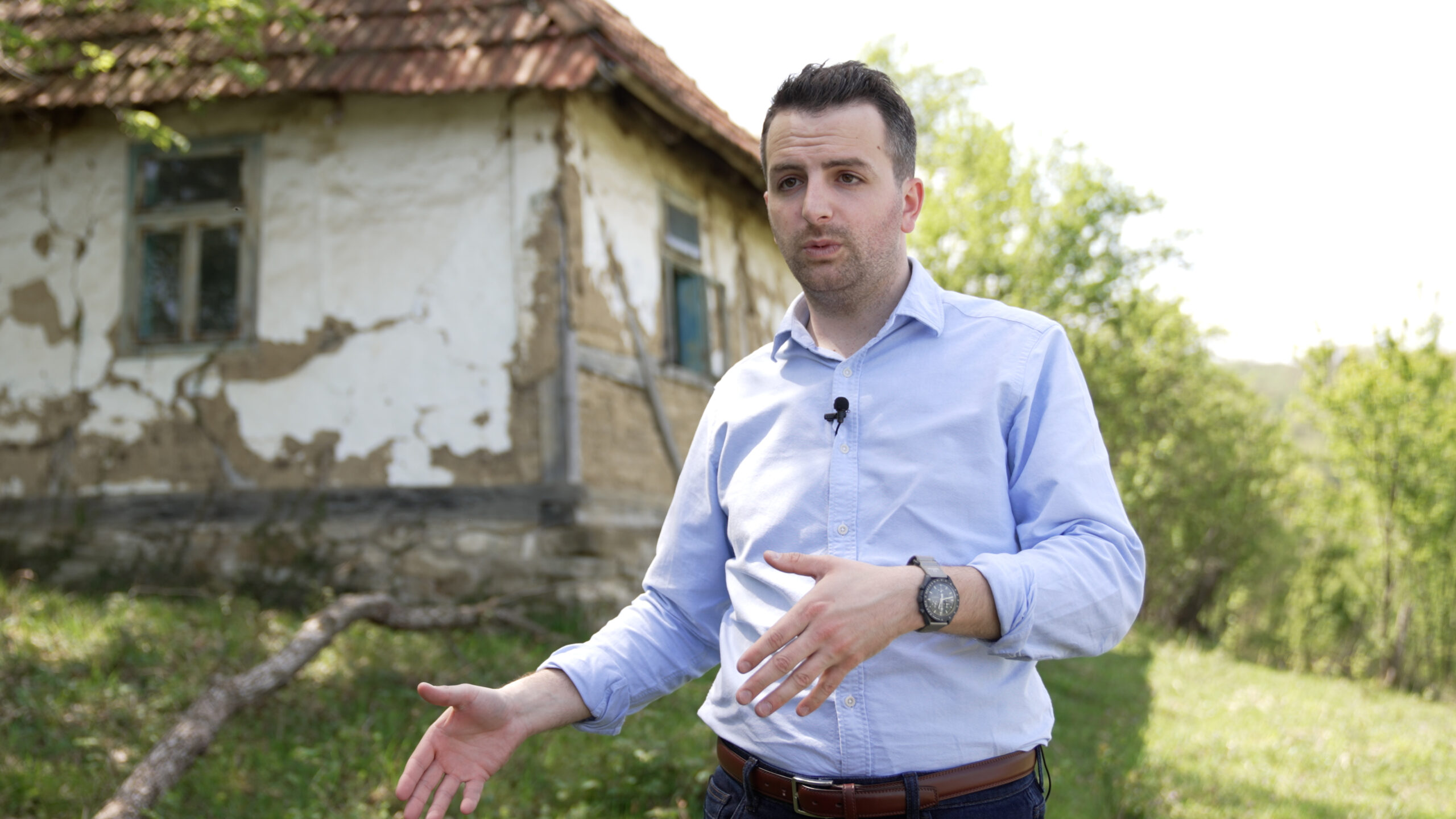
Omer Berbić, representative of the Tuzla Municipality (Federation of Bosnia and Herzegovina). Photo: Átlátszó.
Lopare is part of the Republika Srpska, while Tuzla belongs to the Federation of Bosnia and Herzegovina. “Unfortunately, this is a country of many levels, a complicated country, and that is why dictators like to do business here,” says Berbić. “They know exactly that everything will happen as they agree with the first man, there is not going to be any rule of law that would affect the decision making process.”
A beautiful friendship between Orbán and Dodik
News about Hungary’s possible involvement in the mining project first became public last year, when Viktor Orbán travelled to Sarajevo and Banja Luka for a visit lasting several days. At the time, Radovan Višković, prime minister of the Bosnian Serb Republic, told state television RTRS that they were counting on Hungarian partners for the exploitation of raw materials, as it was reported by Átlátszó’s regional offshoot in Vajdaság (Vojvodina) in Serbia.
However, there was no announcement from the Hungarian side until March of this year, and even then, the possibility of the joint extraction of raw materials was only vaguely mentioned in the government’s press release, published under the title “Foreign-constructed legal witch-hunt against Milorad Dodik“.
At a joint press conference with Dodik on 3 March, Levente Magyar, parliamentary state secretary and deputy minister at the Ministry of Foreign Affairs and Trade, said that “talks are ongoing and, as the president pointed out, we also talked about the joint exploitation of the uniquely rich mineral and natural resources in Bosnia and Herzegovina, including the Republika Srpska.”
Our questions about the planned joint project were not answered by either the Ministry of Foreign Affairs or Milorad Dodik’s office.
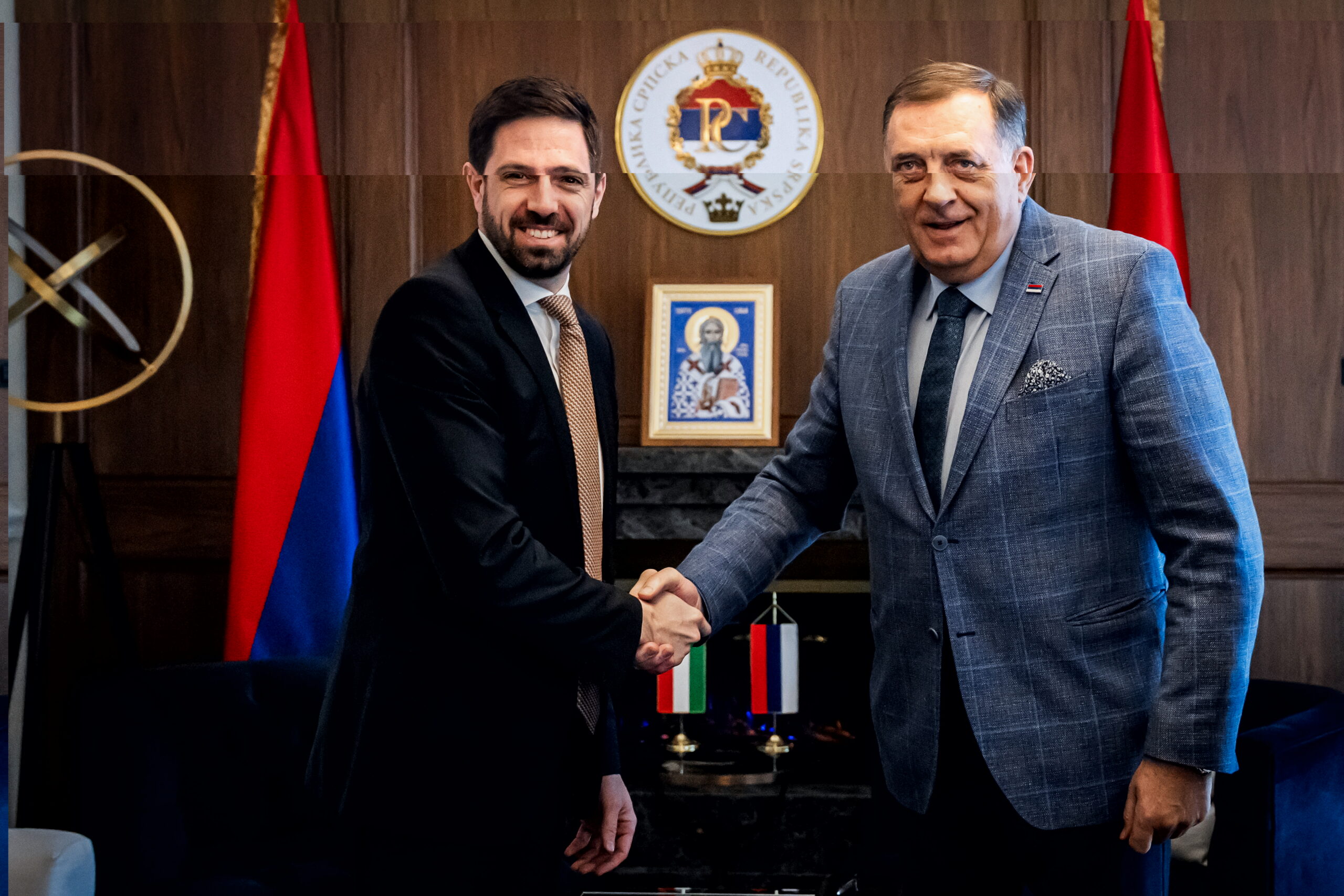
Magyarkanizsa, 2025. március 3.
A Külgazdasági és Külügyminisztérium (KKM) által közreadott képen Milorad Dodik, a boszniai Szerb Köztársaság elnöke (j) fogadja Magyar Leventét, a Külgazdasági és Külügyminisztérium parlamenti államtitkárát Banja Lukában 2025. március 3-án.
MTI/KKM
“We know that Hungary has given us a lot of money through bank loans, and in return, our president and prime minister and actually our government are offering our raw materials on sale,” says Andrijana Pisarević, a journalist (capital.ba). “Not only to Hungary — to the USA, to China, to anybody who is willing to pay them. Because we are really low on money.”
Berbić, the aforementioned representative from the Tuzla Municipality, also believes that Dodik is hoping to gain political influence through good relations with Orbán, and that, in return, he is selling off the country’s wealth. “He acts as if he owned all this,” he adds.
“Our politicians are corrupt, and can not stop with their appetite, that is why we do not have any money. All prices in the public tenders are blown up to the sky. Everybody wants to have their percentage,” says Andrijana Pisarević.
In recent years, Milorad Dodik has become a close political ally of Viktor Orbán. The Hungarian government supports the political aspirations of the Republika Srpska, and provided a €140 million loan to the Bosnian Serb government as well as €26 million in support of a program to help Bosnian Serb farmers bid for Hungarian agricultural machinery.
Environmental friendly mining is like Columbo’s wife or the yeti – no one has ever seen it
“We are most concerned about water pollution,” says Vladimir Topić of the environmental organization Centar za životnu sredinu. “Like all of Bosnia, this region is very rich in natural water and drinking water sources.”
He also stresses that the project has been completely untransparent from the start, and they have limited information. “All we know is that the geological survey area was 87 square kilometers and that an open-pit mine is probably planned,” he says.
“We also know that on the other side of the mountain, the Serbian side, another lithium mine is planned, and the investor wants to use sulphuric acid there. We fear that this could happen here too, that is why we are worried about our waters.” They know from past experience that such pollution can exterminate the ecosystem from a river for tens of kilometers.
However, Milorad Dodik does not seem to be so concerned. “There are some environmentalists saying all sorts of things; every industry has its dangers, that’s true, including lithium mining. But if we can extract it in an environmentally neutral way, why not?,” Euronews quotes him as saying.
However, open-pit mining cannot be environmentally neutral, as it necessarily involves clearing the forest and dismantling the mountain, as the minerals have to be extracted from the rock. Sulphuric acid would also be used to separate the materials.
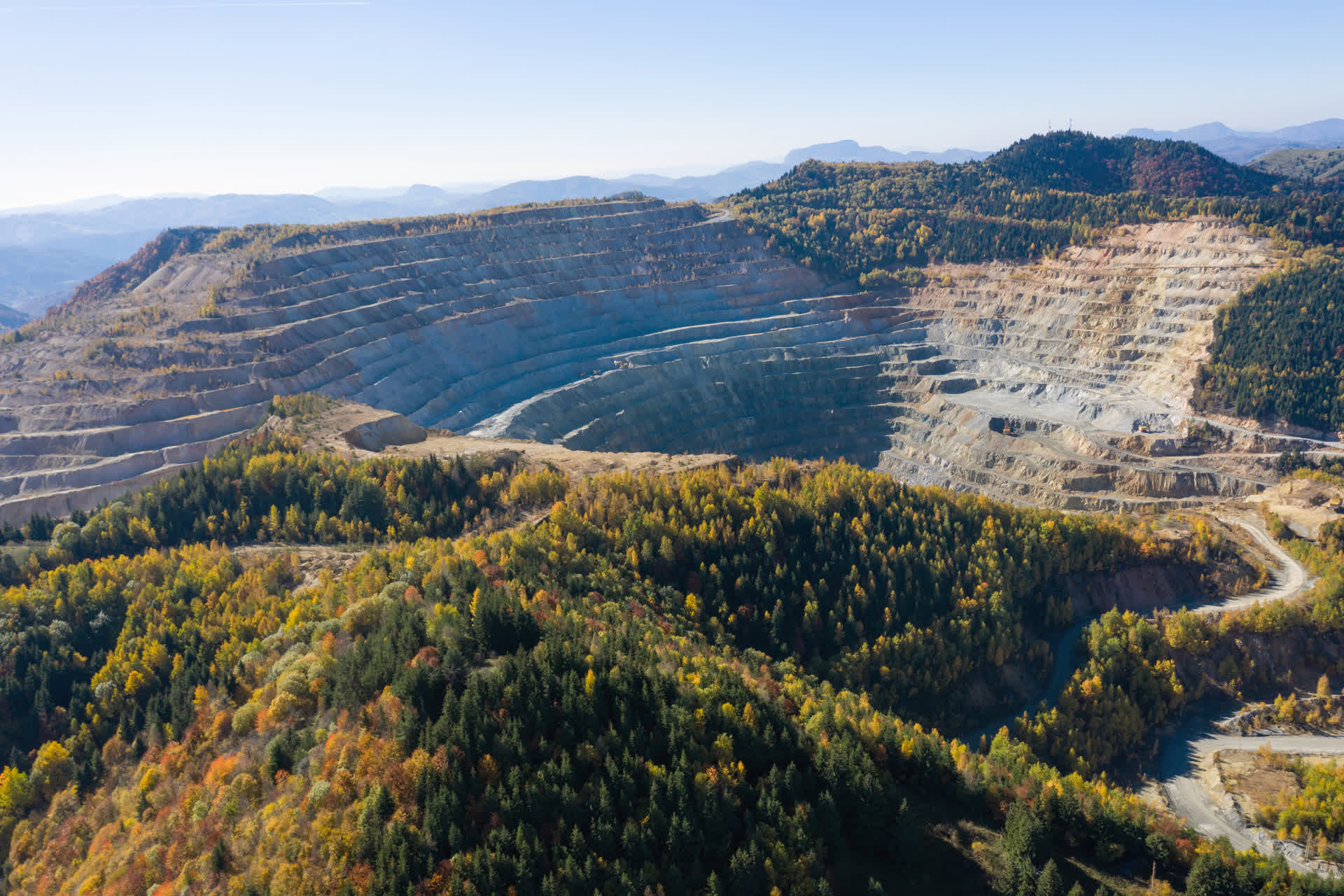
This is how an open-pit mine looks like. Copper mine in Rosia Poieni (Romania). Photo: Motion Array.
“Such a mine would completely change the landscape and hundreds or thousands of people would be forced to leave their homes and land,” says Vladimir Topić. According to Mayor Rado Savić, even much smaller and simpler mines could not comply with environmental regulations.
The EU encourages mining in Europe
The EU Critical Raw Materials Act was adopted in spring 2024. The objective of the regulation is to ensure that at least 10 percent of the EU’s consumption of raw materials considered critical by the EU is sourced from European mining, in order to reduce dependence on China.
These critical raw materials are particularly important for technologies considered “green,” for which the EU expects demand to multiply in the coming years. One such raw material is lithium, which is mainly used for battery production.
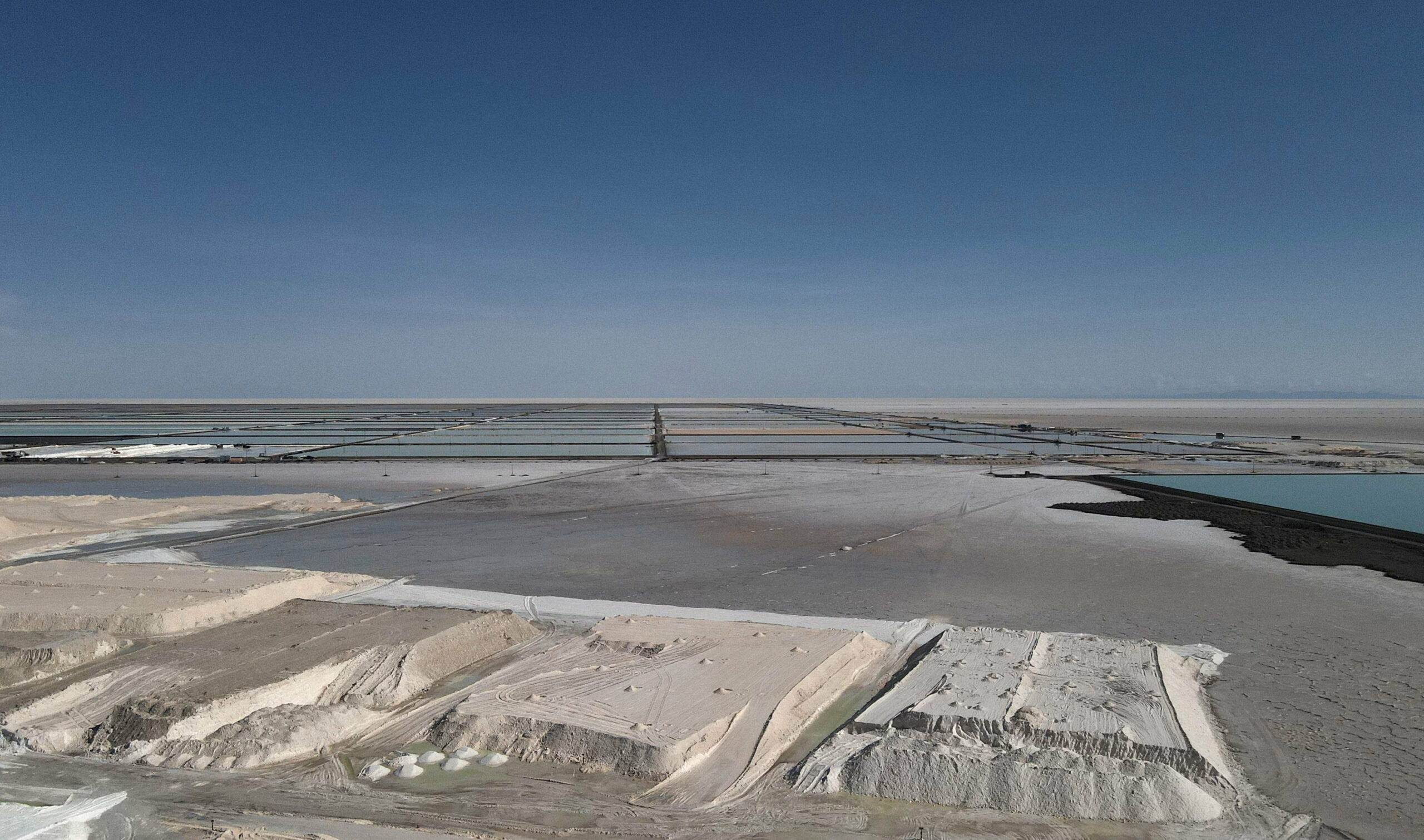
Llipi, 2023. december 15.
A lítiumakkumulátorokban használt lítium-karbonátot elõállító üzem az Uyuni sósivatagban, a bolíviai Llipi környékén a létesítmény avatóünnepsége után, 2023. december 15-én. A tervek szerint az üzemben 15 ezer tonna lítium-karbonátot gyártanak évente.
MTI/EPA/EFE/Luis Gandarillas
On March 25, the European Commission announced so-called strategic projects connected to mining raw materials, but strategic projects from non-EU countries have not yet been named. Strategic projects will benefit from a streamlined permit-granting process limited to 27 months, as well as easier access to financial sources, according to the EU’s expectations.
Vladimir Topić articulates cautious critique about the EU, saying that they are only interested in the minerals and investment and do not hear the voice of local communities. “There are many good things coming from the EU and we want to cooperate, but these mines are turning people against the EU,” he says. Mayor Rado Savić fears the country is becoming a mining colony of the EU.
Ready for anything
Rado Savić says that the affected municipalities are willing to use all possible legal means and will not hesitate to physically resist if necessary.
“We will not give up,” echoes Topić. “We are campaigning for a moratorium on mining throughout the country and we will get involved in the environmental impact assessment procedure of the proposed mine in Lopare when it starts.”
“I have everything here. I’m not leaving,” says the old lady in her garden as she waves goodbye, and starts hoeing again.
Orsolya Fülöp – Zsuzsa Bodnár
Cover photo: Átlátszó-montage using MTI’s photo. Video and photos: Gergely Pápai. Supported by Journalismfund Europe.
Share:
Your support matters. Your donation helps us to uncover the truth.
- PayPal
- Bank transfer
- Patreon
- Benevity
Support our work with a PayPal donation to the Átlátszónet Foundation! Thank you.
Support our work by bank transfer to the account of the Átlátszónet Foundation. Please add in the comments: “Donation”
Beneficiary: Átlátszónet Alapítvány, bank name and address: Raiffeisen Bank, H-1054 Budapest, Akadémia utca 6.
EUR: IBAN HU36 1201 1265 0142 5189 0040 0002
USD: IBAN HU36 1201 1265 0142 5189 0050 0009
HUF: IBAN HU78 1201 1265 0142 5189 0030 0005
SWIFT: UBRTHUHB
Be a follower on Patreon
Support us on Benevity!
